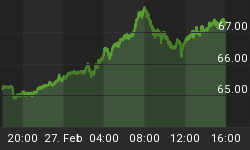One problem in labeling a "currency manipulator" has been the lack of a definition of the term.
But thanks to the Trade Facilitation and Trade Enforcement Act of 2015, that Obama signed, there is now a definition.
It's likely Obama wanted the bill as a threat, but Trump is unlikely to stop with threats. A full blown currency war is highly likely.
Eurointelligence explains via email ...
A currency manipulator is not what you think it is.
A difficulty often encountered in policy discussions is that technical terms have precise meanings that don't necessarily agree with the ordinary language meanings of the words. A case in point is the current brouhaha about Donald Trump's chief trade adviser calling Germany a currency manipulator. The fact is that last year the US senate passed a "customs bill" (the Trade Enforcement and Facilitation Act of 2015), which required the US Treasury to draft criteria defining a country as a "currency manipulator". The criteria developed by the US Treasury under Barack Obama are that, over the previous 12 months, the country:
Is a "major trading partner" of the US, meaning having at least $55bn of bilateral trade;
Runs a "significant trade surplus" with the US, meaning more than $20bn;
Runs a "material" global current account surplus, meaning more than 3 percent of the country's GDP;
Intervenes in a "persistent and one-sided" way in the FX market, meaning making foreign exchange purchases of more than 2 percent of the country's GDP;
A requirement to act against trade partners that manipulate the currency has been on the books in the US since 1988, but the US treasury was able to wiggle out of it before by claiming - rightly - that it was impossible to ascertain the intentions of a foreign government. Defining the concept of manipulation by means of quantitative criteria gets around this. It also makes protestations against Peter Navarro's suggestion that Germany is manipulating the currency mostly moot, unless they address these quantitative criteria.
Assuming that the Trump administration follows through on this and determines that Germany does meet all of the above criteria, making it a currency manipulator, what actions can Germany look forward to on the part of the US? First, the US government should "engage" the trading partner labelled a currency manipulator, meaning the US would urge the country to implement policies to revalue its currency, reduce its bilateral trade surplus and its current account surplus. If a year after the start of this "engagement" the country is seen to have failed to adopt corrective policies, then the US government would be required to take the following actions:
Halt new investment in the country by the US' Overseas Private Investment Corporation;
Generally prevent the US government from procuring goods or services from the country;
Ask the IMF to investigate the country's macroeconomic policies;
Take into account the alleged currency manipulation when negotiating trade agreements.
While one could have expected the Obama administration or a successor administration led by a mainstream Democrat or Republican to use the discretion allowed under the customs bill to avoid what could potentially escalate into a trade war with a major trading partner, it is at least plausible if not likely that the Trump administration will rather use any available excuse to restrict trade and investment with Germany - or, for that matter, with China.
Criteria Analysis
Germany and China each meet at least 3 of the 4 criteria. China may meet all four.
Trump may decide 3 out of 4 is enough; and US manufacturers and steel producers will be egging him on to do just that.
A bill that Obama likely never meant to use, is now a huge sword in Trump's hand.
Not only is a massive trade war in in the works, expect a currency war as an accompaniment.















